1. The Beatles
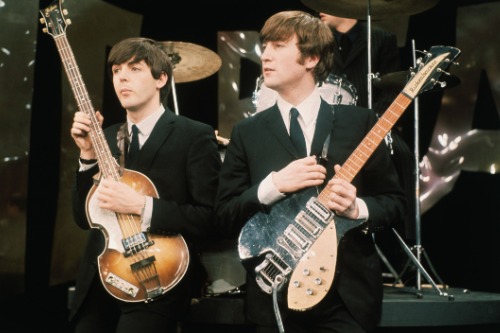
You can’t start this list without tipping your hat to The Beatles. Four guys from Liverpool rewrote the rules of pop and rock music in the ’60s, outselling everyone in the game. Their influence was seismic—melodic innovation, lyrical depth, and studio experimentation all came together in ways no one had heard before. From “She Loves You” to “A Day in the Life,” they pushed boundaries and brought rock and roll into its most iconic era.
They also beat American bands at their own game—topping U.S. charts consistently from 1964 onward and kicking off the so-called British Invasion, Randall J. Stephens of The Washington Post explains. No U.S. band could match the cultural shockwave that was The Beatles’ debut on The Ed Sullivan Show. Over 73 million Americans watched that night, forever changing the landscape. Honestly, they didn’t just play rock and roll—they redefined what it could be.
2. The Rolling Stones
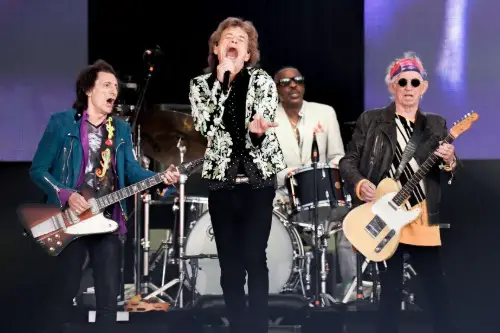
While The Beatles made you fall in love, The Rolling Stones made you want to misbehave. Formed in London in 1962, they brought a grittier, bluesier edge to the British Invasion. Their swagger, fueled by tracks like “(I Can’t Get No) Satisfaction” and “Paint It Black,” made them the darker counterpart to their mop-topped peers. And let’s be honest, America hadn’t seen that kind of raw, rebellious energy from a band since Chuck Berry.
The Stones were deeply rooted in American blues, but they filtered it through British attitude and turned it into something new. They didn’t just copy American rock—they challenged it and arguably surpassed it. Albums like Exile on Main St. are still studied for their depth and dirty genius. Decades on, they’re still touring stadiums like rock royalty, Anthony Mason of CBS News gushes.
3. Led Zeppelin
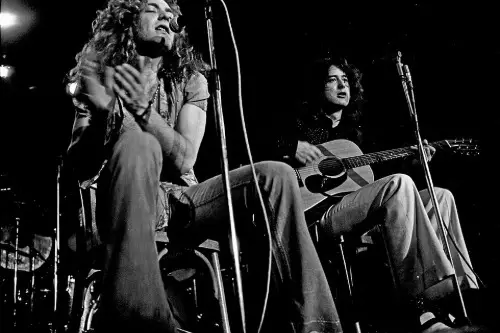
If you’re talking about the invention of hard rock and heavy metal, Led Zeppelin is your go-to. Jimmy Page’s guitar work, Robert Plant’s otherworldly vocals, John Bonham’s thunderous drums—it was a sonic storm. With songs like “Whole Lotta Love” and “Stairway to Heaven,” they built a heavier, more mystical version of rock that few American bands could rival. They weren’t just playing music; they were casting spells, Arwa Haider of the BBC says.
Zep didn’t rely on radio singles to get famous—they created entire albums that felt like epic journeys. Their 1971 untitled fourth album sold over 37 million copies globally, outpacing any comparable American hard rock act at the time. And they did it all without leaning on pop polish. They gave rock and roll a darker, deeper power that America tried to catch up with for years.
4. Pink Floyd
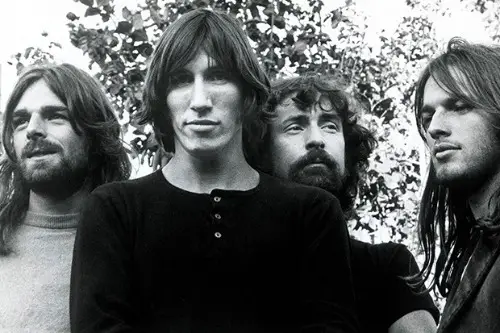
No American band built a universe quite like Pink Floyd did. With their progressive approach and concept-heavy albums, they turned rock into high art. The Dark Side of the Moon spent over 900 weeks on the Billboard 200 chart—that’s nearly two decades of staying power. While U.S. bands dabbled in psychedelia, Floyd perfected it with an existential twist.
Their soundscapes were cinematic, their lyrics philosophical, and their stage shows revolutionary. From the sonic experimentation of Wish You Were Here to the political weight of The Wall, they delivered records that were both immersive and intellectual. Floyd didn’t chase trends; they made them. And with that, they turned rock into something America hadn’t quite imagined.
5. The Who
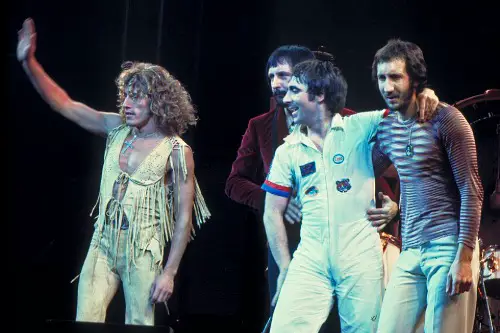
The Who brought sheer force to rock and roll, and their influence on punk and arena rock can’t be overstated. Known for smashing guitars and pounding out anthems like “My Generation” and “Baba O’Riley,” they captured youthful angst better than most American contemporaries. Pete Townshend’s windmill guitar style and Keith Moon’s frenetic drumming added layers of chaos and brilliance. They weren’t just playing music—they were detonating it.
Their 1969 rock opera Tommy was a concept album before that was even a thing people talked about seriously. The Who pioneered big ideas with big sound, paving the way for everything from punk to prog. American acts like The Doors or Jefferson Airplane had their moments, but The Who delivered spectacle with brains. Their live performances alone were enough to raise the bar for everyone else.
6. Queen
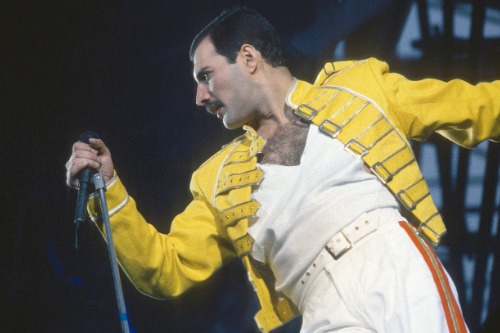
If charisma had a sound, it would be Queen. Freddie Mercury’s voice alone could outshine most bands, but when you add Brian May’s guitar wizardry and the band’s genre-defying approach, you’ve got magic. Queen could do stadium rock, disco, opera, and everything in between—often in the same song, Steve Baltin of Forbes explains. “Bohemian Rhapsody” was a six-minute epic with no chorus that became a global anthem.
While many American bands stuck to a specific formula, Queen thrived on unpredictability. They didn’t just conquer charts—they owned the stage, with performances like Live Aid in 1985 often cited as one of the greatest in rock history. Queen’s appeal was global, theatrical, and deeply British in its eccentricity. And they made American rock feel safe by comparison.
7. Black Sabbath
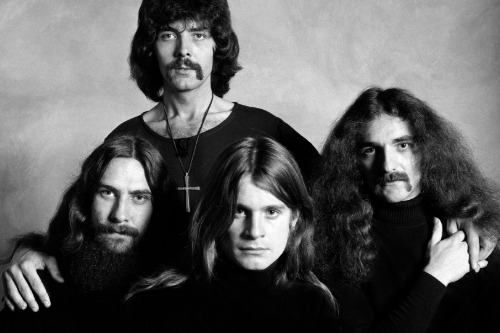
Here’s where things get really heavy. Black Sabbath, fronted by the one-and-only Ozzy Osbourne, laid the groundwork for all things metal. Their 1970 debut album introduced a dark, brooding tone that hadn’t been heard before—not even in the bluesiest corners of American rock. With “Paranoid,” “Iron Man,” and “War Pigs,” they practically invented doom and gloom in music form.
American hard rockers existed, sure—but none brought the apocalyptic weight Sabbath did. They took the blues and made it sinister, adding eerie lyrics, crushing riffs, and gothic overtones. Sabbath was the godfather of every metal band that came after, on both sides of the Atlantic. And that legacy began in the industrial gloom of Birmingham, not Detroit or LA.
8. The Kinks
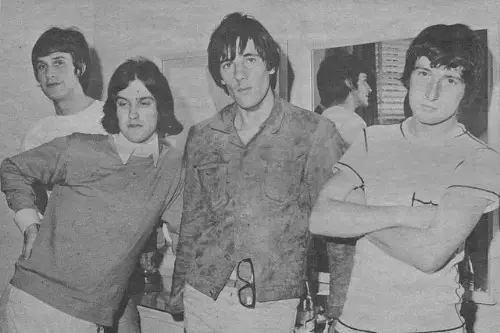
Before distortion was cool, The Kinks were already using it to rattle speakers with “You Really Got Me” in 1964. That raw, aggressive riff was a blueprint for hard rock and punk to come. American bands wouldn’t hit that level of grit and energy until much later. Ray Davies’ songwriting also brought a satirical, distinctly British lens to rock lyrics.
They weren’t chasing fame as frantically as some of their peers, but their influence ran deep. Albums like The Kinks Are the Village Green Preservation Society are now considered pop masterpieces. And without The Kinks, you likely wouldn’t have The Jam, Blur, or even The Strokes in the way we know them. They bridged British class commentary with American musical intensity in a way no U.S. band had managed.
9. Oasis
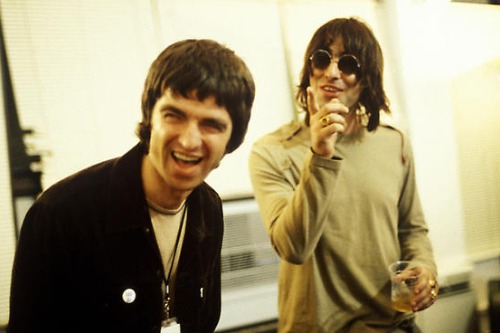
Loud, brash, and unapologetically British, Oasis revived rock in the ’90s when American grunge was fading. While Nirvana and Pearl Jam were turning inward, Oasis went bigger with wall-of-sound guitars and bold declarations like “Live Forever.” Their 1995 album (What’s the Story) Morning Glory? became one of the best-selling albums in UK history—and it did pretty well stateside, too.
The Gallagher brothers weren’t just writing songs—they were living the rock star mythology in real time. Oasis pulled from The Beatles but turned up the volume and the attitude. They brought back swagger and hooks at a time when rock was feeling pretty heavy and sad. America hadn’t produced a band that confident—or that chaotic—in years.
10. The Clash
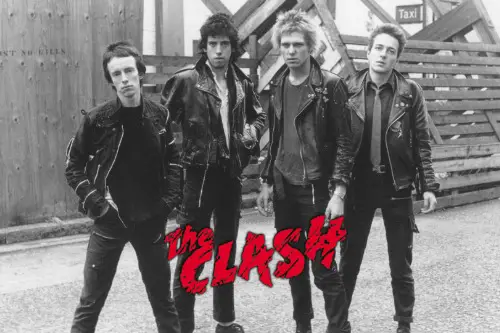
The Clash took punk and infused it with intelligence, politics, and unexpected genre bends. While American punk bands like The Ramones were fast and fun, The Clash added reggae, dub, and funk to the mix and made it radical. London Calling is routinely named one of the greatest albums of all time for a reason—it’s eclectic, defiant, and ridiculously good.
They spoke truth to power and gave punk a conscience. Tracks like “White Riot” and “Clampdown” showed they weren’t just angry—they had something to say. America had punk pioneers, no doubt, but The Clash made it global and gave it depth. They proved punk could be more than noise—it could be revolutionary.
11. The Smiths
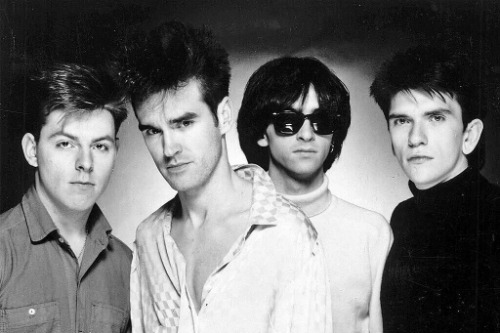
In the 1980s, when American rock was leaning into hair metal and arena anthems, The Smiths brought melancholy and wit into the spotlight. Morrissey’s lyrics were literary, ironic, and painfully real, while Johnny Marr’s jangly guitar created melodies that were instantly memorable. Songs like “This Charming Man” and “There Is a Light That Never Goes Out” hit an emotional chord that American rock rarely touched.
They were never mainstream chart-toppers in the U.S., but their impact was undeniable. The Smiths inspired a generation of indie and alternative acts across the globe, including a host of American bands like R.E.M. and The Killers. Their sound and aesthetic were unlike anything else on either side of the Atlantic. And they made introversion sound revolutionary.
12. Radiohead
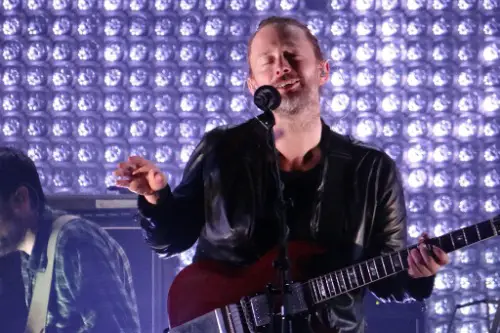
If there’s one band that’s made critics and fans agree for three decades, it’s Radiohead. Starting as a guitar-driven alt-rock band in the early ‘90s, they quickly evolved into something much more complex. OK Computer (1997) and Kid A (2000) are both considered landmarks in modern music for their innovation and emotional depth. American bands have tried to keep up, but few have matched their creative bravery.
Radiohead challenged the very definition of rock, mixing electronic sounds, unconventional structures, and themes of alienation and technology. They were the band that made being weird cool. And while American acts like Nine Inch Nails were pushing boundaries too, Radiohead always seemed one step ahead. They weren’t just part of rock—they were reshaping it.
13. Arctic Monkeys
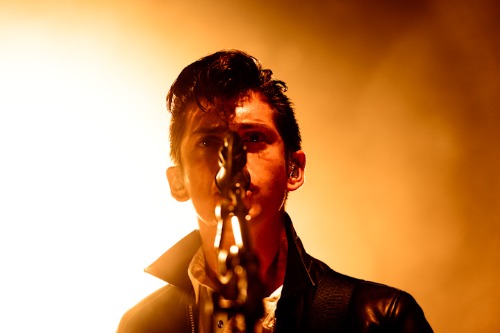
Just when people thought rock might be dying, Arctic Monkeys burst onto the scene in 2006 with lyrics that read like poetry from the pub. Their debut album Whatever People Say I Am, That’s What I’m Not became the fastest-selling debut in UK chart history. Alex Turner’s sharp storytelling and the band’s tight, post-punk energy felt like a shot in the arm. At a time when American charts were dominated by pop and hip-hop, they brought guitars roaring back.
Over time, they evolved their sound with records like AM, blending desert rock with R&B and crooner vibes. Few American bands in the 21st century have had such a consistent cultural impact. They didn’t just survive the “rock is dead” conversation—they danced through it. And they proved the UK still had some serious fire left in its rock scene.


